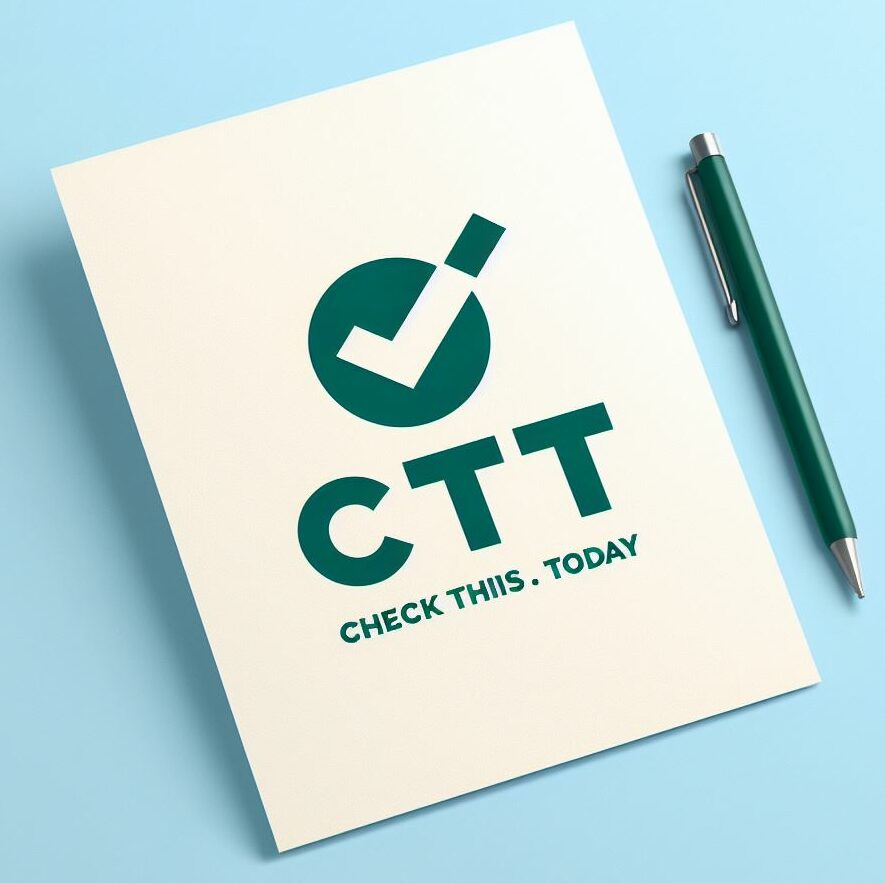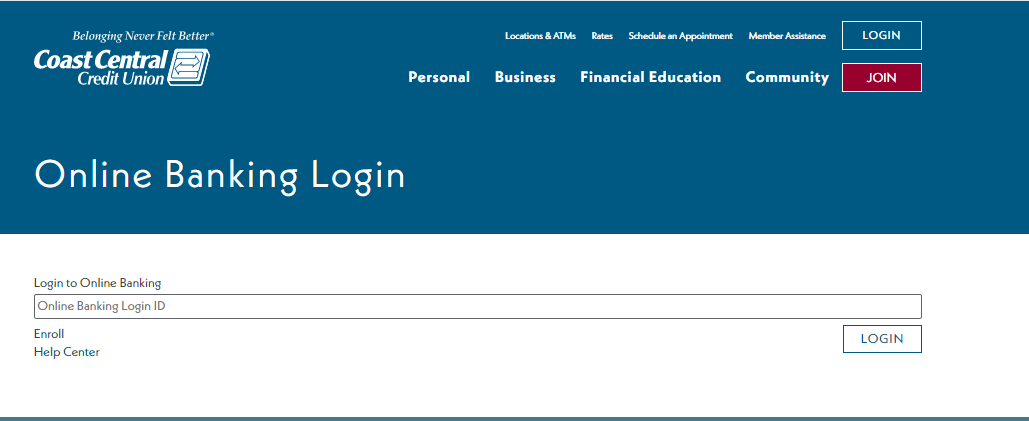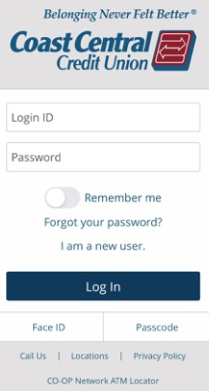If you are looking for Coast Central Credit Union Login then check here I have mentioned step by step process for Coast Central Credit Union Login Official portal. I have also given Coast Central Credit Union Login official links for login including a screenshot on this post.
You can also get details about how to log in to Coast Central Credit Union Login and Reset the password if you forgot it.
Getting Started with Coast Central Credit Union Login Official Portal Page
For Coast Central Credit Union Login Click On the Official portal By Clicking on Login Button Below.
- Enter Username and Password
- Now Click on Login Button
- You Can Access Your Details Now.
Coast Central Credit Union Login Password Reset
If you forget the password then you can reset the password by clicking on Forgot Password/ Reset password. If you have forgotten the password to your Coast Central Credit Union Login account, you may easily reset it by pointing to your web browser by clicking on Forgot Password
Now You have to enter your Username or Email id to get the reset link on your mail. You can also see the screenshot above for resetting the password.
What is a credit union?
Credit unions can be described as financial institutions that are similar to banks but the members of the credit union own the bank. These non-profit entities are not for profit and aim to help their members, rather than make a profit. Because of this, credit unions offer lower fees and loan rates as well as better savings rates.
To join a credit union, you will need to meet some requirements. These requirements will vary depending on the way a credit union was organized. If you are interested in joining a credit union, here’s some information.
Comparison of credit unions and banks
Although they work in a similar way, credit unions and banks have different goal. You become a customer when you open an account with a bank and deposit money there. Banks have a primary obligation to their shareholders and not their customers, unfortunately.
Credit unions offer higher interest rates than banks, but they typically have lower rates for savings and lower rates on loans. Banks have more profit margins if there is a greater difference in savings and loan interest rates. This distinction is significant between credit unions and banks.
Because credit unions are member-owned, they are unique. You become a member-owner of the credit union when you deposit money into a credit union account. You are both a customer as well as an owner. Credit unions use the money you and your fellow members deposit to make loans for other credit union members much like a bank.
Credit unions are primarily focused on serving their members. They take any money that could have been made and use it to support members. Credit unions are known for offering lower rates on savings and lower rates on loans. Credit unions might also have lower fees.
The advantages of credit unions
Credit unions tend to offer more personalized services. Banks may not be located in every community and therefore not have all the decision-makers. Credit unions may be closer to every decision-maker, giving you direct access and information about the decisions regarding your loan application or any other financial transaction.
Other benefits that credit unions might offer include higher interest rates for checking accounts and savings accounts than traditional banks. Online banks might offer higher interest rates than many credit unions. However, they are worth looking into. A credit union, however, will offer you the best rates if your goal is to keep your money locally.
Credit unions often aim to keep their fees as low as possible. Although credit unions still have to charge fees in some cases, they might not have as many fees. They may also charge lower fees than other banks.
Credit unions often offer lower interest rates on loans than local banks.
Advantages of credit unions
Although credit unions offer many wonderful services to members, they are not always better than banks. Before you can become a credit union member, you have to meet the membership requirements. You can’t join the credit cooperative if you don’t meet these requirements.
Because credit unions are smaller, they don’t have the resources or budget to provide the same services as large banks. Credit unions may use technology, such as apps, that is not available to large banks. Credit unions might not be able to offer the same products as big banks.
Credit unions tend to have a small number of locations. These locations are usually only available in the areas that the credit union serves. If you are traveling out of your area and need to speak to a credit union employee, you will most likely be in trouble.
What is the minimum membership requirement to join a credit union?
To join a credit union, members must share something. Credit unions may require that you work for a specific employer, reside in a particular area, or be a member of a group (such as a school or labor union) to join.
Some credit unions will allow you to join an organization even if you don’t meet the requirements. PenFed Credit Union members can join Voices for America’s Troops and the National Military Family Association to become one. Each organization charges $17 for a one-time, non-refundable dues payment.
What is a credit union? How does it work?
What’s the primary purpose of a credit union?
What’s the difference between a credit cooperative and a regular bank branch?
In simple terms, what is a credit union?
Who is the beneficiary of a credit union?
How can credit unions make money?
What are the negatives of credit unions?
Is it public or private credit unions?
Credit unions will check your credit before opening an account?
Are credit unions able to offer interest on savings?
What amount of money can you put in a credit union?
Does credit union affect credit score?
Which is better, a credit union or a bank?













